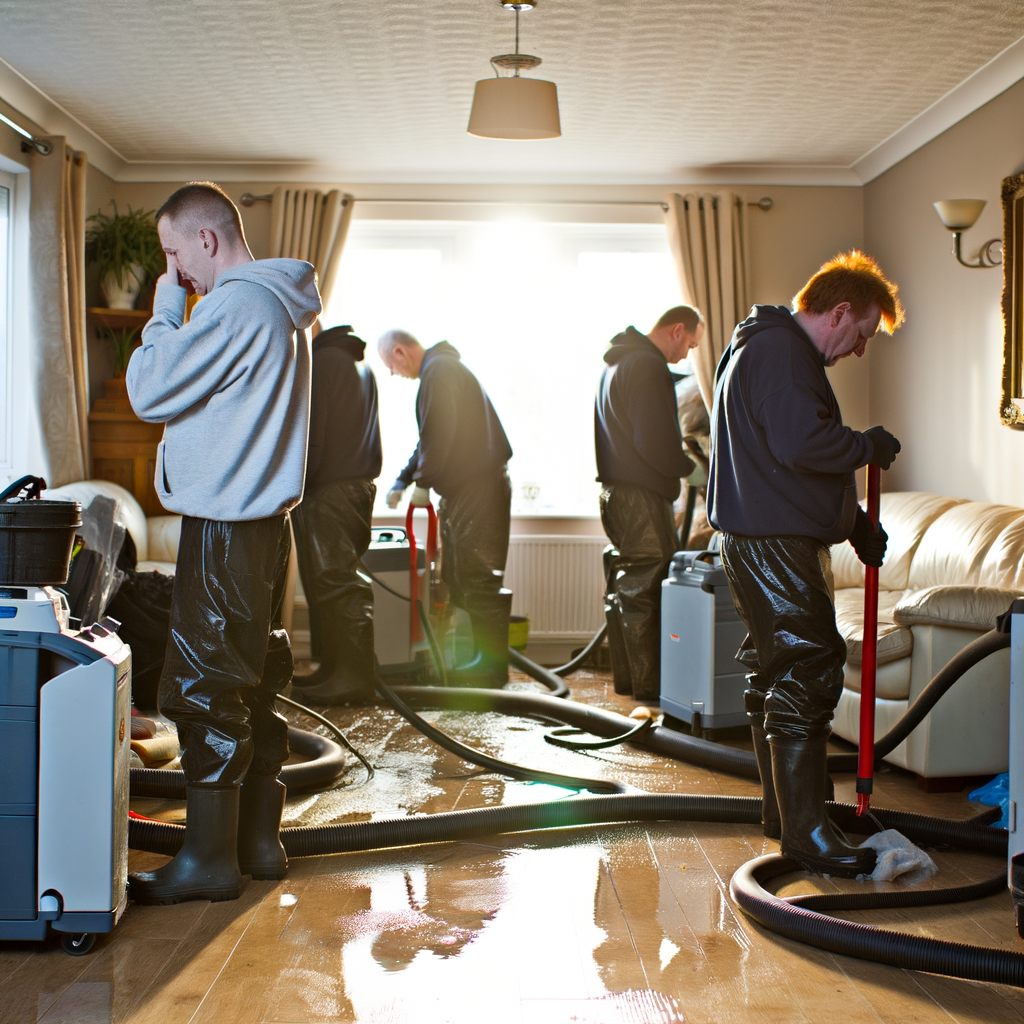Understanding the Ins and Outs of Flood Damage Cleanup and Restoration: A Comprehensive Guide for UK Property Owners
Introduction
Flooding can result in severe damage to property, with long-term risks to the structural integrity of buildings and implications for health and safety due to trapped moisture and mould. UK property owners must be equipped with accurate information on how to handle flood damage cleanup and restoration. This guide will walk you through the process, emphasising safety, efficiency, and measures for avoiding future damages.
Table of Contents
Assessing the Damage
The Flood Cleanup Process
Restoration of Damaged Property
Tailoring Your Insurance Coverage
Preventing Future Flooding
Frequently Asked Questions
References
Assessing the Damage
Understanding the extent of flood damage is the critical first step in the recovery process [1]. It involves inspecting structural elements, checking for contamination, and identifying potential threats like mould or electrical hazards. In 2019, the UK Environment Agency reported that approximately 5 million people in England were at risk from flooding [2]. Therefore, knowing how to accurately evaluate flood damage is essential.
The Flood Cleanup Process
Once damage assessment is complete, the cleanup process begins. This phase involves removing water and debris, drying the area, disinfecting surfaces, and treating for mould. As a general rule, any floodwater remaining in a property for more than 48 hours can lead to significant mould growth, increasing health and safety risks [3].
Restoration of Damaged Property
Restoring your property post-flooding is no small feat. It is necessary to seek help from professionals who understand the UK’s building regulations, insurance processes, and have experience dealing with flood damage [4]. Restoration may involve structural repairs, cosmetic touch-ups, and the replacement of damaged goods.
Tailoring Your Insurance Coverage
Insurance can help cover the high costs of flood damage cleanup and restoration. The UK government plays a pivotal role in flood insurance, with initiatives such as Flood Re, designed to ensure affordable access to flood insurance for high-risk households [5].
Preventing Future Flooding
After experiencing a flooding event, steps should be taken to mitigate future risks. This can include the installation of flood barriers, raising electrical sockets, and sealing floors and walls. It’s crucial to adapt to future flood risk to safeguard your property.
Frequently Asked Questions
What are some signs of flood damage to look out for?
How long does the typical cleanup and restoration process take?
What precautions can be taken to prevent mould growth after a flood?
How does Flood Re work and am I eligible?
What measures can I implement to protect my property from future floods?
Conclusion
Understanding flood damage cleanup and restoration in the aftermath of a flood can prove crucial in safeguarding your property and health. With mindful attention to assessment, cleanup, restoration, insurance, and future-proofing, you can navigate the challenges presented by flood damage.
References
[1] UK Gov. (2019). “Understanding flooding: Water entering a property”. Environment Agency. Link
[2] Environment Agency. (2019). “Flooding: Know Your Risk”. Gov UK. Link
[3] BBC. (2018). “Flood-damaged homes: What happens next?”. BBC. Link
[4] National Flood Prevention Association. (2021). “Flood Restoration”. NFPA. Link
[5] Flood Re. (2020). “Understanding Flood Re: Making insurance affordable for those most at risk”. Flood Re. Link




